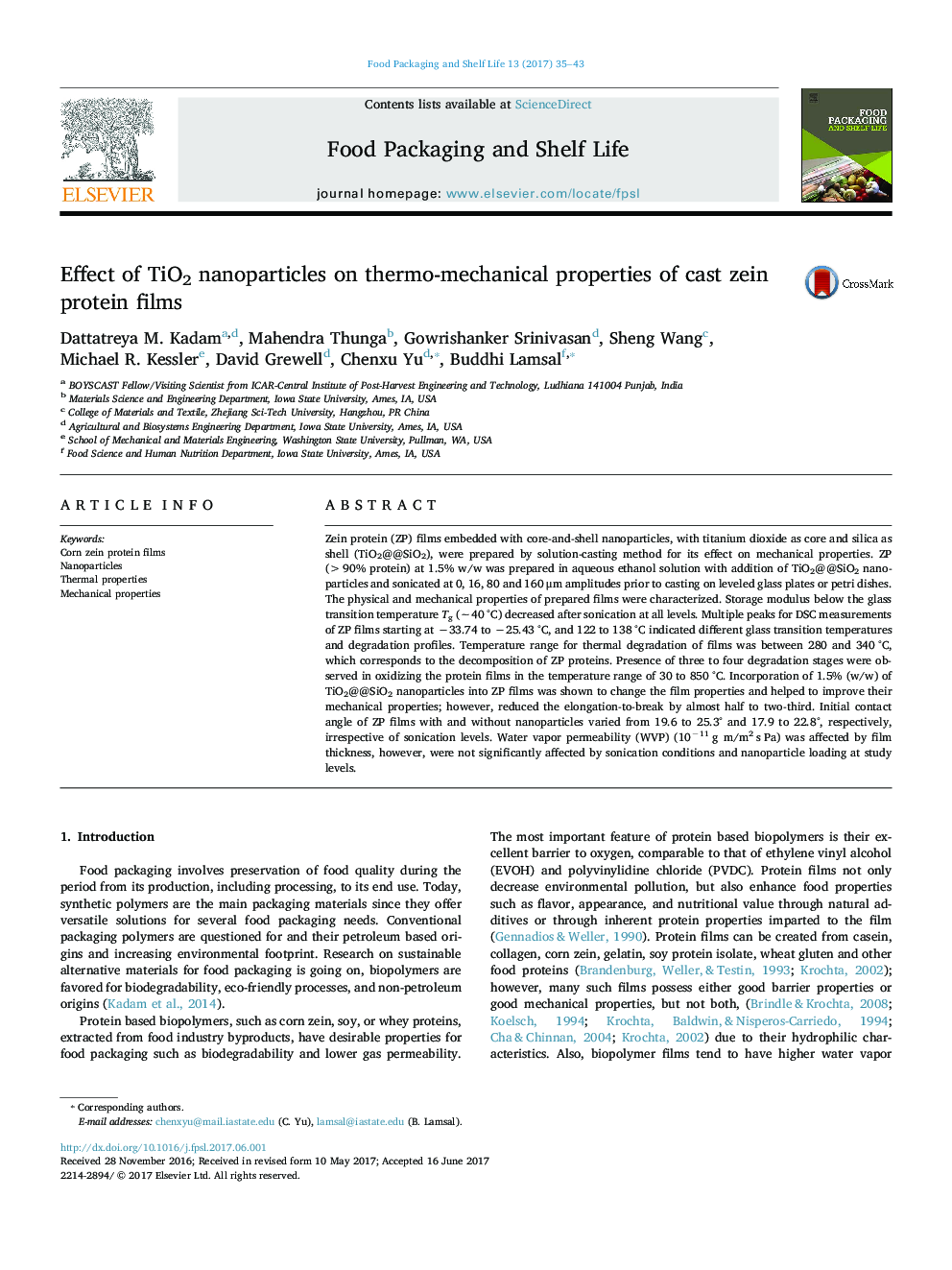| Article ID | Journal | Published Year | Pages | File Type |
|---|---|---|---|---|
| 4753117 | Food Packaging and Shelf Life | 2017 | 9 Pages |
Abstract
Zein protein (ZP) films embedded with core-and-shell nanoparticles, with titanium dioxide as core and silica as shell (TiO2@@SiO2), were prepared by solution-casting method for its effect on mechanical properties. ZP (>90% protein) at 1.5% w/w was prepared in aqueous ethanol solution with addition of TiO2@@SiO2 nanoparticles and sonicated at 0, 16, 80 and 160 μm amplitudes prior to casting on leveled glass plates or petri dishes. The physical and mechanical properties of prepared films were characterized. Storage modulus below the glass transition temperature Tg (â¼40 °C) decreased after sonication at all levels. Multiple peaks for DSC measurements of ZP films starting at â33.74 to â25.43 °C, and 122 to 138 °C indicated different glass transition temperatures and degradation profiles. Temperature range for thermal degradation of films was between 280 and 340 °C, which corresponds to the decomposition of ZP proteins. Presence of three to four degradation stages were observed in oxidizing the protein films in the temperature range of 30 to 850 °C. Incorporation of 1.5% (w/w) of TiO2@@SiO2 nanoparticles into ZP films was shown to change the film properties and helped to improve their mechanical properties; however, reduced the elongation-to-break by almost half to two-third. Initial contact angle of ZP films with and without nanoparticles varied from 19.6 to 25.3° and 17.9 to 22.8°, respectively, irrespective of sonication levels. Water vapor permeability (WVP) (10â11 g m/m2 s Pa) was affected by film thickness, however, were not significantly affected by sonication conditions and nanoparticle loading at study levels.
Related Topics
Physical Sciences and Engineering
Chemical Engineering
Bioengineering
Authors
Dattatreya M. Kadam, Mahendra Thunga, Gowrishanker Srinivasan, Sheng Wang, Michael R. Kessler, David Grewell, Chenxu Yu, Buddhi Lamsal,
